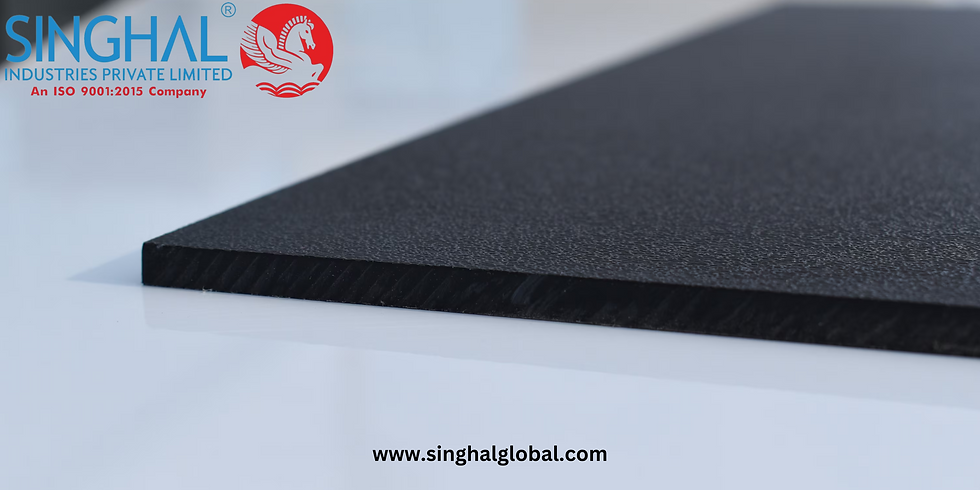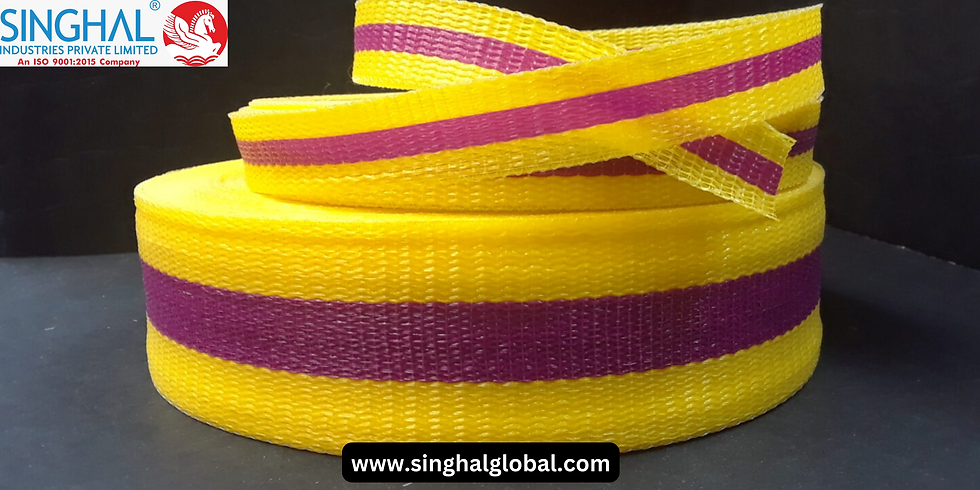TPU Film Innovations: Enhancing Performance in Healthcare and Automotive Industries
- Akash Pathak
- Jul 12, 2024
- 3 min read

Thermoplastic polyurethane (TPU) films have emerged as versatile materials, revolutionizing applications across diverse industries like healthcare and automotive. Known for their exceptional properties of flexibility, durability, and resistance, TPU films are increasingly preferred for their ability to meet stringent performance demands. This article delves into the innovative uses of TPU films, their manufacturing processes, and their pivotal roles in enhancing product performance across critical sectors.
Understanding TPU Films
TPU films are thermoplastic elastomers known for their unique combination of properties. They are produced through the reaction of diisocyanates with polyols, resulting in a material that bridges the gap between rubber and plastics. This synthesis allows TPU films to exhibit high elasticity, transparency, resistance to oils and abrasions, and excellent mechanical properties, making them ideal for various specialized applications, including as a key material sourced from TPU film suppliers in India.
Applications in Healthcare
In the healthcare sector, TPU films have become indispensable due to their biocompatibility, flexibility, and resistance to sterilization methods. They are extensively used in medical devices such as wound dressings, surgical drapes, catheters, and prosthetics. TPU films provide a barrier against bacteria and fluids, ensuring patient safety while maintaining comfort and flexibility. The ability of TPU films to conform to complex shapes and withstand repeated sterilizations makes them preferred materials in medical applications.
Advancements in Automotive Industry
In automotive applications, TPU films play a crucial role in enhancing vehicle performance and safety, including applications such as airbags, seat covers, interior trims, and exterior protective films. TPU films offer superior abrasion resistance, weatherability, and impact absorption properties, contributing to the durability and longevity of automotive components. Their lightweight nature and ease of processing further facilitate their integration into advanced automotive designs aimed at improving fuel efficiency and reducing environmental impact. Manufacturers, including TPU film manufacturers in Gujarat, are instrumental in developing these innovative solutions that meet the demanding requirements of the automotive industry.
Manufacturing Process
The manufacturing of TPU films involves several stages, beginning with the mixing of raw materials followed by extrusion, calendaring, or solvent casting to achieve the desired thickness and properties. The films are then subjected to finishing processes such as embossing, lamination, or surface treatments to enhance functionalities like adhesion or printability. Quality control measures ensure that TPU films meet rigorous standards for mechanical strength, chemical resistance, and dimensional stability required by end-users in healthcare and automotive sectors.
Environmental Considerations
With increasing focus on sustainability, TPU films are evolving to meet environmental standards. Manufacturers, including TPU film manufacturers in Kolkata, are adopting recyclable and bio-based TPU formulations to reduce carbon footprint and dependency on fossil fuels. Innovations in recycling technologies aim to reclaim and reuse TPU materials, promoting a circular economy approach that minimizes waste and conserves resources. These initiatives align with global efforts towards eco-friendly manufacturing practices across industries.
Conclusion
TPU films continue to redefine performance standards in healthcare and automotive industries through their superior properties and versatility. As advancements in material science and manufacturing techniques progress, TPU films are poised to further expand their applications, offering sustainable solutions that meet evolving market demands. By leveraging their inherent strengths of flexibility, durability, and environmental adaptability, TPU films are set to play a pivotal role in shaping the future of high-performance materials across global markets.
Frequently Asked Questions (FAQs)
1. What are the primary advantages of TPU films in healthcare applications?
TPU films offer biocompatibility, flexibility, and resistance to sterilization, making them ideal for medical devices and equipment requiring stringent safety standards.
2. How are TPU films beneficial in automotive applications?
In automotive sectors, TPU films enhance durability, impact resistance, and weatherability, contributing to improved performance and safety of vehicles.
3. What advancements are being made in sustainable TPU film manufacturing?
Manufacturers are developing recyclable and bio-based TPU formulations to minimize environmental impact and support sustainable practices.



Comments